Thanks to Tova Fleming for sitting down and talking about my poetry book and scholarly work! You can read more about our conversation here.
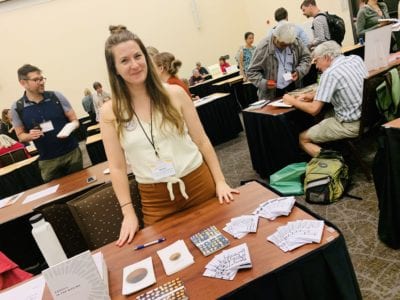
By admin in articles, Books, conferences
Thanks to Tova Fleming for sitting down and talking about my poetry book and scholarly work! You can read more about our conversation here.

By admin in conferences, event, poetry reading Tags: poetry reading, science of poetry, SLSA19
If you’re attending SLSA 2019 or in the LA / Orange County area, there are two chances to hear from our roundtable about the science of poetry:
Thursday, 11/7 at Skylight Books in LA, 7:30pm and Saturday, 11/9 at UCI, 3:45-5:15
Poetry and Science at the Margins: In this roundtable, six poets will read and discuss work about their engagements with science that was or is considered peripheral to mainstream scientific theory and practice. The participants are Will Alexander, Karen Leona Anderson, Kristin George Bagdanov, Amy Catanzano, Adam Dickinson and Stephanie Strickland. Addressing physics, mathematics, biology, as well as other scientific disciplines, these poets will ask how cultural forces shape and define “the marginal” as well as the ingenious ways that science was transformed by marginal practitioners. This roundtable will also ask why poetry, as a genre sometimes considered both marginal and experimental, is well suited to treat questions of knowledge, power, and speculation at the boundaries, and we’ll discuss how poets use such language not just to represent, but to intervene in, the processes of scientific inquiry. Drawing on everything from early microscopy to contemporary physics, these readings will Involve the audience in a discussion of the embodied, material consequences of “experimental engagements” for both scientists and poets
By admin in conferences Tags: MLA, new nuclear criticism
Thanks to everyone who came out to the New Nuclear Criticism panel at MLA 2019! Here’s the archived page with more information about the panels and speakers.
By admin in conferences Tags: ASLE, CFP, MLA
ASLE-sponsore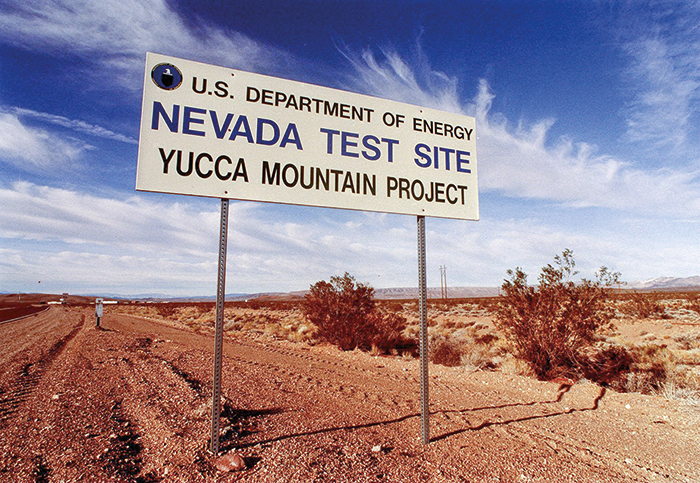 d panel, MLA 2019 in Chicago | 300-500word abstracts due March 1 to kgeorgebagdanov@ucdavis.edu
d panel, MLA 2019 in Chicago | 300-500word abstracts due March 1 to kgeorgebagdanov@ucdavis.edu
Panel Description:
Do we need a new nuclear criticism? How can ecocritical frameworks and new archives and methods help us re-encounter “the nuclear” and re-asses its relationship to literature and culture?
https://apps.mla.org/cfp_detail_11140
For most, nuclear criticism was a blip on the radar of literary criticism. What began as an honest attempt to ground deconstruction and “high theory” in pragmatic, ethical matters all but ended with the fall of the Berlin wall, even as “the nuclear” in its many material and symbolic valences continued to structure geopolitical relations and ecological conditions. If “the nuclear” represents a critical intersection of geopolitics and ecology, then how might contemporary ecocritical frameworks help develop a new nuclear criticism, one that is expanded and reconfigured to address the shortcomings of this project’s previous manifestation? Furthermore, how might the energy humanities, new materialisms, indigenous studies, feminism, queer theory, critical race studies, or affect theory (to name a few) offer inroads to re-examining the relationship between literature and the nuclear?
The “original” nuclear criticism, incited by President Reagan’s revival of cold war rhetoric in the 1980s, primarily analyzed nuclear narratives implicit in political discourse and uncovered unconscious nuclear fears in canonical literary texts, reaching its pinnacle with the 1984 issue of Diacritics featuring Derrida’s well-known, elliptical piece, “No Apocalypse, Not Now (Full Speed Ahead: Seven Missiles and Seven Missives)”. At its outset, proponents of nuclear criticism imagined it would be a wild success, envisioning its institutionalization and establishment as a discrete academic department in colleges around the world. Why, then, did it all but fade into obscurity simply because the Cold War had been declared over? One possible explanation is that its exigency rested too heavily on the rhetorical coupling of the Cold War and nuclear weapons, as it based its theoretical interventions on the unthinkability of nuclear apocalypse (see Frances Ferguson’s “nuclear sublime”) and on nuclear war as a totalizing event (Derrida’s “ultimate referent”). Furthermore, this version of nuclear criticism relied upon a fairly narrow archive (political discourse and novels or films), method (deconstruction), and formulation of the nuclear (“the bomb” or the spectacular event). Thus, a new nuclear criticism must rely on alterative avenues of support to defend its necessity and portability.
We invite papers that explore alternative archives (how does poetry, for instance, treat the nuclear?), expanded methods (how does critical race theory undermine ideas about the “apocalypse” as central to the nuclear imaginary?), and different forms of the nuclear (what is the relationship between the event of the bomb and the slow violence of nuclear waste?). Whether or not we agree with the New Yorker that we are entering a “Cold War 2.0,” or contend that we are simply entering another phase of the Long Cold War, “the nuclear” continues to structure both geopolitical and ecological relations and thus requires renewed attention and scholarship.
Note: this is a non-guaranteed MLA 2019 panel sponsored by the Association for Literature and the Environment (ASLE)
By admin in art, conferences
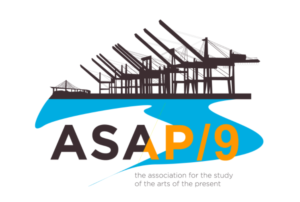 Thanks to everyone who came out to our roundtable, “Materiality in Contemporary Art: Compos(t)ing the Past Through the Present,” at ASAP 9 this past weekend in Oakland. We heard from poets, artists, and scholars and their varying methods and views of materiality, form, and contemporary art. I was so impressed by this conference as a whole, and can’t wait to attend again!
Thanks to everyone who came out to our roundtable, “Materiality in Contemporary Art: Compos(t)ing the Past Through the Present,” at ASAP 9 this past weekend in Oakland. We heard from poets, artists, and scholars and their varying methods and views of materiality, form, and contemporary art. I was so impressed by this conference as a whole, and can’t wait to attend again!
Check out the program here
By admin in conferences, event, poetry reading, presentations
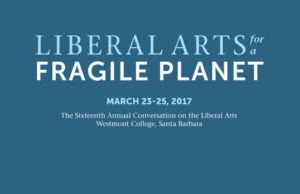 I’m doing a poetry reading on Thursday, March 23 to kick off the Liberal Arts for a Fragile Planet conference at Westmont College this weekend. 7pm, Hieronymous Lounge. Paul Willis will also be reading.
I’m doing a poetry reading on Thursday, March 23 to kick off the Liberal Arts for a Fragile Planet conference at Westmont College this weekend. 7pm, Hieronymous Lounge. Paul Willis will also be reading.
The reading (and all the other plenary sessions) are free and open to the public. Full schedule here.
For those attending the conference, I’ll be presenting my paper “A New Formalism for the Anthropocene: Portable Forms for Interdisciplinary Conversations” at concurrent session 3 on Saturday. Hope to see you there!
By admin in conferences, presentations Tags: 2016, AWP, drought, ecopoetics
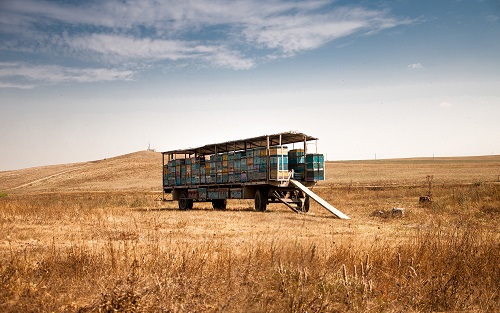 Omniverse, the online magazine affiliated with Omnidawn, will be publishing our AWP 2016 panel “Poetics of Drought” in three installments. Read the first part here, featuring an introduction by me and an essay and poem by Rusty Morrison.
Omniverse, the online magazine affiliated with Omnidawn, will be publishing our AWP 2016 panel “Poetics of Drought” in three installments. Read the first part here, featuring an introduction by me and an essay and poem by Rusty Morrison.
Get the highlights from Poetry Magazine here.
“This panel proposes that the poem is entangled with this very materiality and that the formal constraints and affordances of drought bear upon the poetic form, which in turn can reconfigure the means by which we engage the conditions of this ecological crisis.”
Update: read part two “Notes toward a Poetics of Drought” by Matthew Cooperman and part three “Beyond a Shadow of a Drought” by Brenda Hillman.